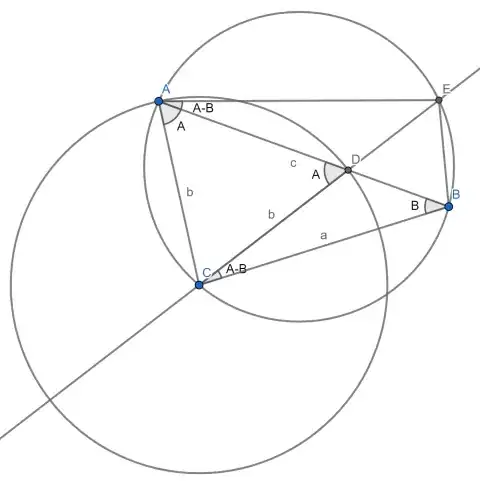If $a, b$ and $c$ (all distinct) are the sides of a triangle ABC opposite to the angles $A, B$ and $C$, respectively, then $\frac{c\sin(A-B)}{a^2-b^2}-\frac{b\sin(C-A)}{c^2-a^2}$ is equal to $?$
By opening, $\sin(A-B)$ as $\sin A\cos B-\cos A\sin B$ and then $\sin A$ as $\frac{a}{2R}$ and $\cos A$ as $\frac{b^2+c^2-a^2}{2bc}$, I am able to get the answer as zero. But I am looking for a shorter solution, maybe by putting values of angles and sides.
My first instinct was to assume the triangle to be equilateral. But the question invalidates that case. Then I thought of a right angled triangle with pythogorean triplet as $3,4,5$. But here, I don't know other two angles.
I wonder if I could just keep a dummy triangle handy whose sides and angles I know, which I could quickly use to solve such questions. Any help please? Thanks.
